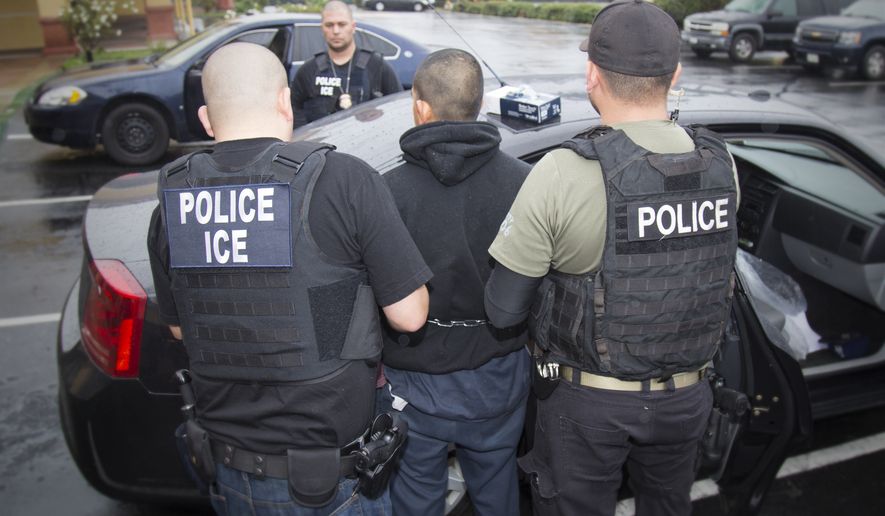Federal law enforcement agencies knowingly invite foreigners, often with lengthy criminal records, into the U.S., sponsoring them for visas on the hope they’ll help out with an investigation.
But in dozens of those cases the government has lost track of the people and agents were slow in reporting them to Homeland Security, allowing the trail to go cold in efforts to track down, according to a Justice Department inspector general’s report released Wednesday.
From 2015 to 2017 the Justice Department sponsored roughly 5,500 immigrants for deferred deportation, an S visa or parole into the U.S.
In about 20% of those cases the department’s agencies bungled things, either allowing the person’s status to lapse into illegal presence or failing to maintain data on them.
In more than 60 cases, the migrants actually absconded, cutting off contact with their federal sponsors and leaving Homeland Security on the hook to try to track them down and deport them, the investigation found.
Worse yet, in some of those cases the FBI or Drug Enforcement Administration agents working the cases waited months to alert their superiors that someone had fled.
That meant Homeland Security wasn’t informed until “well after,” the audit said.
“We are concerned that the monitoring policies and practices currently executed by the DOJ components that sponsor foreign nationals do not adequately mitigate the risks associated with bringing individuals into the
United States who may have criminal backgrounds or involvement in disreputable activities, or who may be associated with such individuals,” the inspector general concluded.
The DEA and the FBI were the biggest users of the program, though everyone from U.S. attorneys to the U.S. Marshals Service sponsored some foreign nationals for status in the U.S. during the three-year period studied.
Foreigners, meanwhile, ranged from confidential informants to cooperating witnesses — or “derivative” family members who were allowed in at the same time.
In one case a DEA special agent was supposed to be monitoring a sponsored foreigner who was on house arrest, but was unaware the person had moved 1,000 miles away.
It wasn’t until Homeland Security officials learned of the move and flagged it that the DEA figured out the person wasn’t where they were supposed to be.
In another case the inspector general identified a DEA-sponsored person and a family member also admitted on the same visa who were charged with drug trafficking. Investigators alerted the DEA to the case, and the agency then asked Homeland Security to revoke their visas.
The inspector general’s audit ran criminal checks on the absconded foreigners and didn’t find any subsequent entanglements with the law. But the investigators said it’s possible they, or other sponsored foreigners, did have arrests or convictions not connected to their immigration files.
One case investigators did identify was the Bureau of Alcohol, Tobacco, Firearms and Explosives (ATF), which reported one of its sponsored people was arrested for driving while impaired. ATF canceled its sponsorship six days after the arrest and notified Homeland Security.
The audit does not, however, say how often deportation agents were able to find people once they were notified someone was out of status or had absconded.
The inspector general made 10 recommendations ranging from better cooperation with Homeland Security to more thorough guidance about how sponsored foreigners should be monitored while they’re hear.
Justice Department agencies agreed with all the recommendations, and began taking steps even amid the audit to improve.
• Stephen Dinan can be reached at sdinan@washingtontimes.com.




Please read our comment policy before commenting.